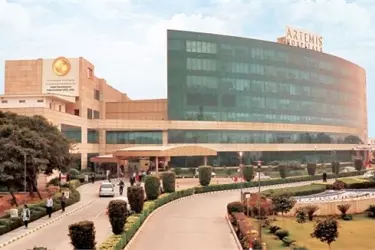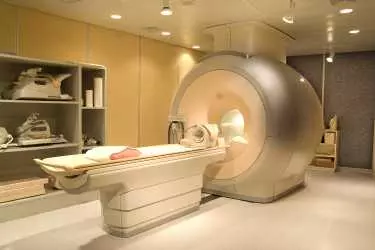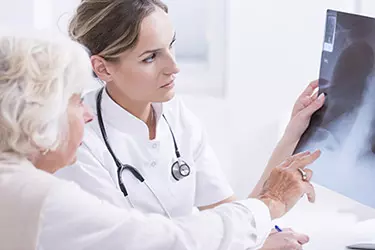Polycystic Ovarian Disease (PCOD) or Polycystic Ovarian Syndrome (PCOS) is a problem caused by hormonal imbalance in women. It can cause problems with your periods and make it difficult to get pregnant.
may also cause unwanted changes in the way you look. If it isn't treated, over time it can lead to serious health problems, such as diabetes and heart disease. Most women with PCOS grow many small cysts in their ovaries. That is why it is called polycystic ovary syndrome. The cysts are not harmful but lead to hormonal imbalance.
Early diagnosis and treatment can help control the symptoms and prevent long-term problems. Hormones are chemical messengers that trigger many different processes, including growth and energy production. Often, the job of one hormone is to signal the release of another hormone. For reasons that are not well understood, in PCOS the hormones get out of balance. One hormone change triggers another, which changes another. For example: The sex hormones get out of balance. Normally, the ovaries make a tiny amount of male sex hormones (androgens). In PCOS, they start making slightly more androgens. This may cause you to stop ovulating, get acne, and grow extra facial and body hair. The body may have a problem using insulin, called insulin resistance. When the body doesn't use insulin well, blood sugar levels go up. Over time, this increases your chance of getting diabetes.
Reasons for PCOD - The cause of PCOS is not fully understood, but genetics may be a factor. PCOS seems to run in families, so your chance of having it is higher if other women in your family have it or have irregular periods or diabetes. PCOS can be passed down from either your mother's or father's side.
Symptoms of PCOD - Symptoms tend to be mild at first. You may have only a few symptoms or a lot of them. The most common symptoms are:
![]() Acne
Acne
![]() Weight gain and trouble losing weight
Weight gain and trouble losing weight
![]() Extra hair on the face and body. Often women get thicker and darker facial hair and more hair on the chest, belly, and back
Extra hair on the face and body. Often women get thicker and darker facial hair and more hair on the chest, belly, and back
![]() Thinning hair on the scalp
Thinning hair on the scalp
![]() Irregular periods - Often women with PCOS have fewer than nine periods a year. Some women have no periods. Others have - very heavy bleeding
Irregular periods - Often women with PCOS have fewer than nine periods a year. Some women have no periods. Others have - very heavy bleeding
![]() Fertility problems - Many women who have PCOS have trouble getting pregnant (infertility)
Fertility problems - Many women who have PCOS have trouble getting pregnant (infertility)
![]() Depression
Depression
Diagnosing PCOD - You may get a pelvic ultrasound to look for cysts in your ovaries. Your doctor may be able to tell you that you have PCOS without an ultrasound, but this test will help him or her rule out other problems.
Treatment Options for PCOD - PCOD needs more of life style managment than any medication. Following can help reduce the effects of PCOD:
![]() Regular exercise, healthy foods, and weight control are the key treatments for PCOS. Treatment can reduce unpleasant symptoms and help prevent long-term health problems. Try to fit in moderate activity and/or vigorous activity often. Walking is a great exercise that most people can do.
Regular exercise, healthy foods, and weight control are the key treatments for PCOS. Treatment can reduce unpleasant symptoms and help prevent long-term health problems. Try to fit in moderate activity and/or vigorous activity often. Walking is a great exercise that most people can do.
![]() Eat heart-healthy foods. This includes lots of vegetables, fruits, nuts, beans, and whole grains. It limits foods that are high in saturated fat, such as meats, cheeses, and fried foods.
Eat heart-healthy foods. This includes lots of vegetables, fruits, nuts, beans, and whole grains. It limits foods that are high in saturated fat, such as meats, cheeses, and fried foods.
![]() If you smoke, consider quitting. Women who smoke have higher androgen levels that may contribute to PCOS symptoms.
Your doctor may also prescribe birth control pills to reduce symptoms, metformin to help you have regular menstrual cycles, or fertility medicines if you are having trouble getting pregnant.
If you smoke, consider quitting. Women who smoke have higher androgen levels that may contribute to PCOS symptoms.
Your doctor may also prescribe birth control pills to reduce symptoms, metformin to help you have regular menstrual cycles, or fertility medicines if you are having trouble getting pregnant.

Our hospitals are located in the northern part of India specially in the NCR region comprising New Delhi, Gurgaon, Noida and Faridabad which all are within a distance of 20-50 kms from the New Delhi airport. Our hospitals are super specialty in the fields of Neurosurgery, Cardiology, Joint Replacement, Cancer Care, Liver and Kidney Transplants, Cosmetic Surgery and many other branches of medicine. All our hospitals offer quality treatment and are accreditated by NABH or JCI. For patients coming from other countries our team members would receive you at the airport and escort you to the hospital or the hotel as the case maybe.

We have the latest MRI, CT Scan, Digital X-Ray, Bone Densitometry (DEXA), Mammography, Ultrasound, Colour Doppler, PET Scan, Nuclear Imaging, Cardiac Imaging, Neuro Lab and the most advanced Pathology Lab which gives us the diagnostic confidence for providing the right treatment.
Modular fully equipped Operation Theatres with Computer Navigation and C-Arm backed by a state of art ICU helps us in providing world class treatment to our patients. We are equipped to handle the most complex of the surgeries due to the state of art cutting edge technology.

Our team of doctors include some of the best names from the Indian Medical Fraternity. Dr Arun Saroha, Dr V.S.Mehta, Dr Vikas Kathuria, Dr Sandeep Vaishya in Neurosurgery, Dr Sumita Singh in Breast and Piles, Dr AK Sethi, Dr Sudeep Jain, Dr Subhash Jangid, Dr Debashish, Dr Anuj Chawla, Dr Ratnav Ratan,Dr Reetandyuti and Dr Praveen Tittal in Joints, Dr Priyanjana Sharma in ENT, Dr Kaushal Yadav, Dr Ankur Garg, Dr Shilpi Sharma, Dr Abhishek Mitra in Cancer Surgery, Dr Pramod Prasad, Dr Sumita Singh and Dr Vikram Singh in GI Laparoscopic Surgery, Dr Pushpa Sethi, Dr Amita Shah and Dr Parvinder Kaur in Obs, Gynae and Infertility, Dr Raman Tanwar and Dr Chandrakant Kar in Urology, Dr Pramod Prasad for Pilonidal Sinus Surgery are some of the key doctors with us.
This patient in India was suffering from Diabetic Neuropathy but could not consult a Neurologist before 6 months so the patient came to India and recovered fully in just 15 days. Watch the video above to know the full story.
In this video you would see the patients from several countries sharing their experiences about treatment in Indian Hospitals for all kinds of conditions. Watch the video to know what to expect when you come to India.
This is the story of a Bangldeshi Patient who was shot in the neck in line of duty and got complete quadriplegia due to the injury. Watch the video to see the amazing recovery due to the treatment provided in India.